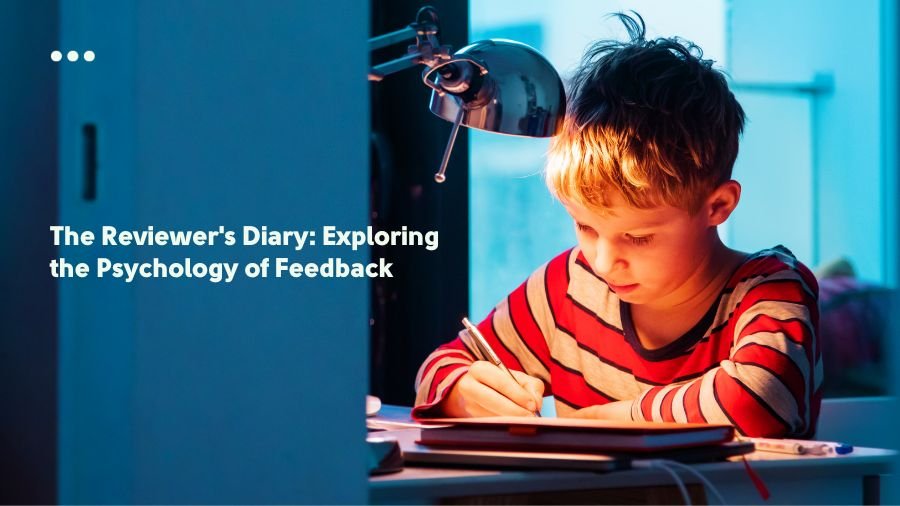Introduction
Feedback is a fundamental aspect of human communication and growth. Whether in the workplace, academia, or personal relationships, the exchange of feedback shapes our understanding of ourselves and others. In this article, we’ll delve into the intricacies of feedback, exploring its psychology, its impact on individuals and organizations, and how it can be leveraged for personal and professional development.
The Power of Feedback
Feedback is more than just words on paper or comments in a meeting; it’s a potent tool for improvement and growth. Understanding the psychology behind feedback can help us harness its power effectively.
The Psychology of Feedback
1. Feedback as a Mirror
Feedback acts as a mirror, reflecting our actions, behaviors, and performance. It provides insights into our strengths and weaknesses, offering a glimpse into how others perceive us. Understanding this mirror effect is crucial for self-awareness and personal development.
2. The Feedback Loop
Feedback initiates a continuous loop of improvement. When we receive feedback, it triggers self-reflection, leading to adjustments in our behavior and actions. This iterative process drives personal and professional growth.
3. Emotional Impact
Feedback can evoke a range of emotions. Positive feedback boosts confidence and motivation, while negative feedback can be disheartening. Understanding how feedback affects our emotions is vital for maintaining a healthy mindset.
Feedback in Different Contexts
4. Workplace Feedback
In the professional realm, feedback plays a pivotal role in performance evaluations and career progression. We’ll explore how constructive feedback can lead to career advancement and the importance of a feedback-rich workplace culture.
5. Academic Feedback
Feedback in education isn’t just about grades; it’s about fostering a growth mindset in students. We’ll discuss the role of feedback in learning and how teachers can provide effective feedback to inspire academic excellence.
6. Personal Relationships
Feedback is equally relevant in personal relationships. We’ll explore how communication within families, friendships, and romantic partnerships can benefit from constructive feedback.
Strategies for Effective Feedback
7. The Art of Giving Feedback
Providing feedback isn’t always easy. We’ll share strategies for delivering feedback in a constructive and empathetic manner, ensuring it’s well-received and leads to positive change.
8. Receiving Feedback Gracefully
Receiving feedback gracefully is an art in itself. We’ll discuss techniques for accepting feedback with an open mind and using it as a catalyst for self-improvement.
The Organizational Impact
9. Feedback in Leadership
Leaders who value feedback create a culture of growth and innovation within their organizations. We’ll delve into how leaders can utilize feedback to steer their teams towards success.
10. Feedback and Employee Engagement
Employee engagement is closely linked to feedback. We’ll explore how regular feedback sessions can boost morale and productivity in the workplace.
Conclusion
Feedback is a powerful tool that shapes our personal and professional lives. Understanding the psychology behind it empowers us to use feedback constructively, fostering growth, self-awareness, and improved relationships. Embrace feedback as a valuable resource on your journey of self-discovery and development.
FAQs
1. How can I handle negative feedback more positively?
Handling negative feedback positively involves maintaining an open mind, reframing criticism as an opportunity for improvement, and seeking clarification when needed.
2. Is feedback always verbal or written?
Feedback can take various forms, including verbal, written, non-verbal cues, and body language. Effective feedback considers all these aspects.
3. How can organizations encourage a feedback-rich culture?
Organizations can promote a feedback-rich culture by providing training on giving and receiving feedback, recognizing and rewarding feedback-driven improvements, and fostering open communication channels.
4. What should I do if I disagree with the feedback I receive?
If you disagree with feedback, it’s essential to seek clarification and engage in a constructive dialogue with the person providing the feedback. Finding common ground can lead to a more accurate assessment.
5. Can feedback be overwhelming?
Feedback can sometimes feel overwhelming, especially when there’s an abundance of it. Prioritize and address feedback systematically, focusing on the most critical areas for improvement.
In this article, we’ve explored the multifaceted world of feedback, from its psychological impact to its significance in various aspects of life. Feedback is a tool that can propel us forward, and when harnessed effectively, it becomes a catalyst for personal and professional growth. So, embrace feedback as your ally on the journey towards self-improvement and success.



